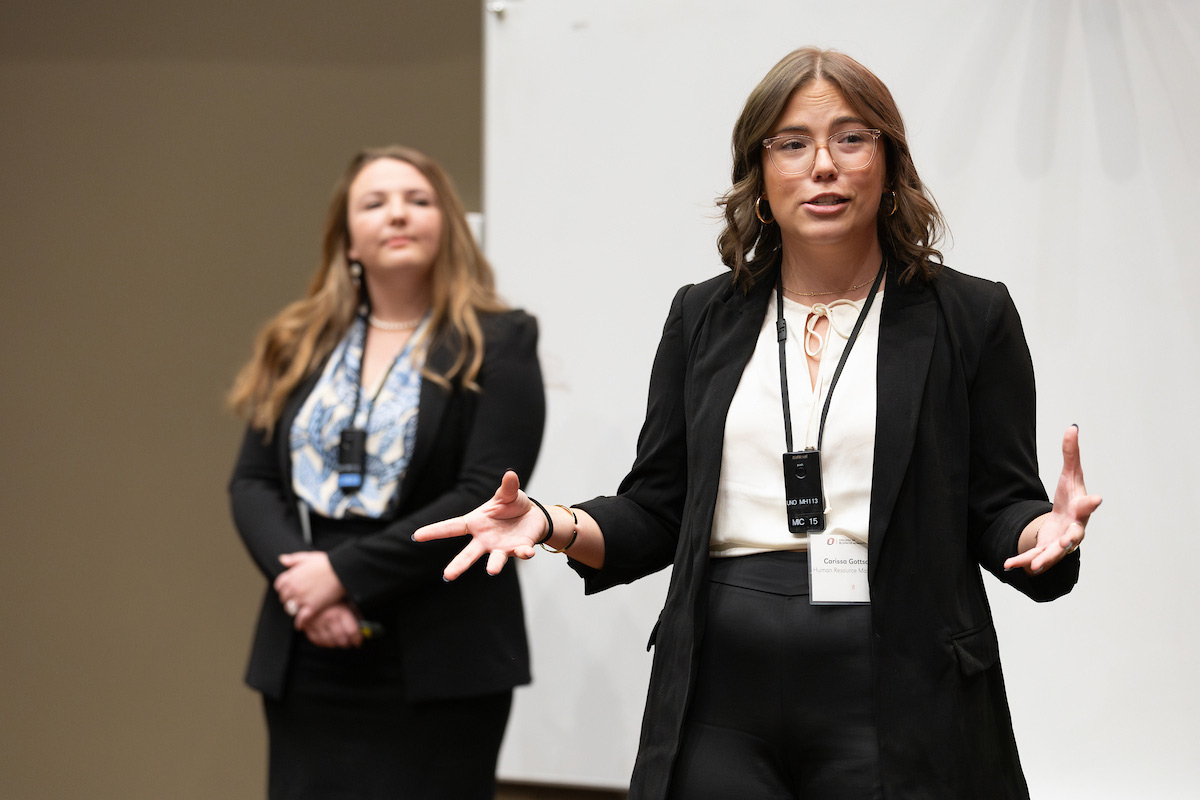Bussiness
Audit accuses USC economic office of misusing COVID money, ethical and business conflicts • SC Daily Gazette

COLUMBIA — The University of South Carolina’s economic development office misspent $1.7 million in federal COVID relief funds, according to findings by the Legislature’s auditors, which the college president disputes.
The review requested by a bipartisan group of state legislators also found the university’s Office of Economic Engagement likely violated ethical standards and sent employees to golf tournaments and football bowl games at taxpayers’ expense, according to the 165-page report released last Thursday.
The economic office is tasked with forming partnerships between industry and the college, as well as licensing and commercializing patents for university research. The review by the Legislative Audit Council covered six years — July 2017 through June 2023. During that period, the university went through three separate presidents, including the return of one in an interim role.
What auditors found was mismanagement and a lack of oversight, said legislators who asked for the audit in response to concerns they were hearing.
“This is a damning report,” said former Sen. Dick Harpootlian, whose district used to include the USC campus. “I’d say this program was a total failure.”
“Now the challenge to USC is to make sure it doesn’t happen again,” the Columbia Democrat added.
According to the university, steps were taken to improve the office’s operations even before the audit’s completion.
At the top of its findings, the Legislative Audit Council cited $1.7 million in “questionable transactions” related to federal pandemic aid that the governor’s office awarded the state’s largest university system.
USC, through its Economic Engagement office, was given a total of $6 million to establish a series of Apple-branded computer labs around the state aimed at communities without adequate internet access. But it spent more than $600,000 on contracts for a pair of computer labs in Columbia that never opened to the public, in addition to other purchases.
- About $400,000 meant for marketing of the computer labs went largely to market the Economic Engagement office itself. The CEO of the public relations firm contracted to do the work was a personal friend of the office leadership.
- More than $280,000 for salaries and benefits for eight employees who never worked on the project, even after a different university employee flagged it as a potential violation.
- More than $237,000 to rent time on a quantum computer in North Carolina without giving the public the ability to access it.
- Nearly $150,000 for access to a database of research at the university that was never provided. In another potential ethics problem, the office contracted with a former business associate of one of its officials for this work.
- About $4,500 for Apple watches provided to 11 staff members of USC’s remote learning and regional campuses program, known as the Palmetto College.
The state’s largest university system maintains the expenses were allowable under the federal grant conditions, college President Michael Amiridis said in his response.
“The term ‘questionable’ inappropriately creates the negative impression that (Economic Engagement) acted outside the purposes for which the grant was established, which it did not,” wrote Amiridis, who took the school’s helm in July 2022.
Unopened labs
Economic Engagement first attempted to open one of the failed computer labs within a technology incubator controlled by the South Carolina Research Foundation, which is technically independent but is tied to the university. As USC president, Amiridis sits on the governing board of the foundation, which often co-employed Economic Engagement staff, according to the audit.
The incubator is located in a downtown building the foundation has rented from the city of Columbia since 2006. Amid poor conditions in and around the building, the city terminated the lease effective at the end of this year.
The termination notice occurred after staff purchased computer equipment and tablets that have since sat in storage.
A second, smaller lab, within the South Carolina Research Authority’s Ronald E. McNair Center for Aerospace Innovation and Research was temporarily used for virtual classes about Apple operating systems. But few people signed up to participate because they lacked access to Apple products, the audit found.
As of February, auditors said the lab contained a limited number of desks and no computers.
In his letter, Amiridis said Economic Engagement had made its best efforts to open labs across the state.
It succeeded in standing up eight — four located in libraries in Union, Kershaw and Laurens counties and four on USC satellite campuses in Lancaster, Sumter, Colleton and Allendale counties. Benedict College partnered to open a ninth on its campus.
“While the success of those efforts may be subject to interpretation, the underlying expenditure of federal funds to support those efforts was indeed necessary, reasonable and appropriate,” Amiridis wrote.
Due to the concern of the auditors, though, the school has since moved funding around so the federal dollars would go to “other legitimate expenses related to USC’s distance education technology services,” Amiridis wrote. He did not name those alternative expenses.
Golf tournaments, galas and football games
A second finding called into question travel expenses of Economic Engagement employees reimbursed with taxpayer dollars.
From 2019 to 2023, the school paid for an office employee to attend two galas and four sporting events, including a trip to the Gator Bowl in 2022 to see South Carolina play the University of Notre Dame.
According to the office, it sponsored these events for outreach and networking purposes. In a justification letter about the Florida trip specifically, the employee said he hosted a business owner and the owner’s family at the Gator Bowl to discuss expanding student internships and partnering with the school at its future medical school campus.
However, when auditors asked the business owner about it, the person denied attending the Gator Bowl with the employee.
The employee no longer works for the university. The report did not name either the employee or the business owner.
‘Questionable ethics’
Finally, the audit found “examples of questionable ethics and potential violations of the S.C. Ethics Reform Act.”
For example, an office official used the business incubator as a workaround to hire a company for a $675,000 contract after the school’s own audit office had deemed it a conflict of interest.
And the same company given federal COVID money for computer lab access to a database of university experts was, years earlier, contracted by the incubator to create that database. It used more than $500,000 in state Commerce Department funds to build it.
After commissioning the portal, Commerce later discontinued it due to a lack of interest from universities to use it. Still, Economic Engagement kept paying for it.
“This particular office had a very opaque way of doing things with little oversight, which can lead to misuse of taxpayer funds,” said Sen. Josh Kimbrell of Boiling Springs, who’s among Republicans who requested the audit.
In addition to dinging the university, legislative auditors called down two state agencies — the departments of Commerce and Administration — for not doing more to ensure state and federal grants were properly spent.
Harpootlian, the former senator that helped initiate the audit, said while the dollar amounts in question are tiny when compared to the university system’s overall $2 billion budget, it’s still concerning because it could put future grant funding at risk.
The Columbia attorney would like to see the Legislature’s auditors conduct random audits of all state agencies more regularly, “to make sure money is not being frittered away like it was here.”
“I’m afraid this is not an isolated problem,” Harpootlian added.
USC pushed back in its response to the audit, which took two years. In his letter, Amiridis questioned “whether the resulting cost of the review to South Carolina taxpayers can be justified in this case.”
He also faulted auditors for not interviewing top university officials. Had they talked to him, Amiridis wrote, they would have learned that, upon his hiring in July 2022, he “quickly concluded that (Economic Engagement) was not appropriately aligned with his vision for the university’s engagement with industry, researchers, students, entrepreneurs, and government.”
The school has transferred the Economic Engagement office’s grant management to its central grants office for oversight. And in March, Amiridis and the school’s governing board appointed the former College of Pharmacy dean as the office’s new director.
“The University of South Carolina is committed to prudent use of taxpayer funds and welcomes good faith reviews of its practices. The important work of (Economic Engagement) in forging new business partnerships and encouraging innovation and entrepreneurship is essential to the University’s mission of serving the State,” Amirids wrote in conclusion. “USC is grateful for the conclusion of this inquiry so efforts can be fully directed towards these goals.”
The office’s former director, Bill Kirkland, told the SC Daily Gazette he’s proud of the office’s accomplishments during his decade leading it, adding “while I take exception to the findings in this report, I have been retired for nearly a year and see no reason to look back.”










